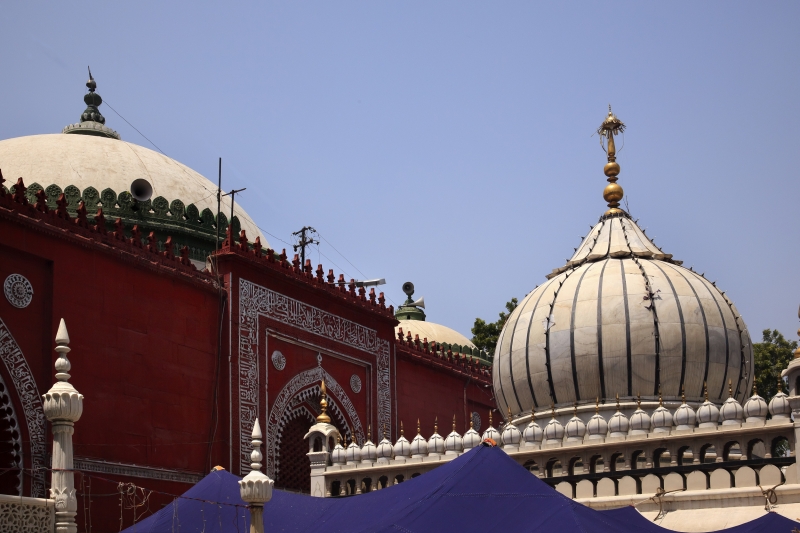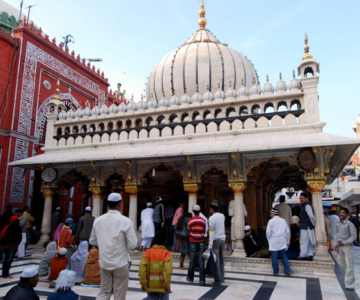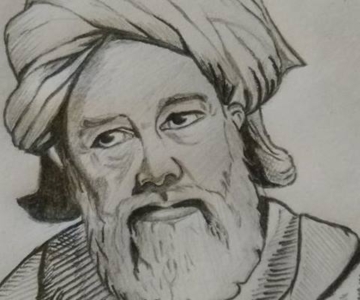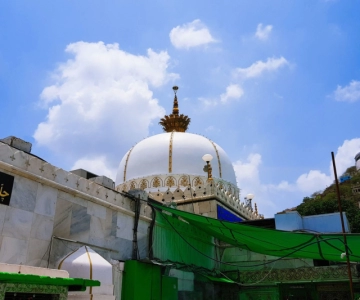The Sultan of Hearts
Hazrat Nizamuddin Auliya
contribution by Sadia Dehlvi
The 6th of last May marked the 682n AD/703 Hijri death anniversary or Urs celebrations of the most important Sufi of Delhi, Hazrat Nizamuddin Auliya or Mehboob e Elahi as he is popularly known. Baba Farid Ganj e Shaker had prayed that his successor should “become the tree which gives shelter and peace to humanity.” Firuz Shah of the Tughlaq dynasty addressed him as Sultan al Mashaikh , Emperor of the Mystics.
The Shaikh’s ancestors migrated to Badayun from Bukhara following the oppression of the Mongols. The family which once enjoyed status was reduced to abject poverty. The Shaikh’s father died early and the widowed mother would often say, “Nizamuddin, today we are the guests of God,” which meant there was nothing to eat in the house.
The Sufi traveled to Delhi and made his khanqah at Ghiyaspur now known as Nizamuddin with thousands becoming devotees. Among them were the powerful, the common, rich, poor, learned, illiterate, townsfolk, villagers, soldiers, warriors and slaves. The kitchen grew to became a huge establishment which supplied food to thousands of people every day. The provisions of the kitchen stores were not to be kept for more than a week and an atmosphere of hoarding was discouraged. The Shaikh ate sparingly tearfully confessing of the trouble he had swallowing food as there were countless starving people in the city.
Music remained a source of spiritual nourishment for the Shaykh and the regular sama mehfils enchanted the public. The jamaatkhana of the khanqah served as a welfare centre for the locality supporting the needy in every way. One hot day in summer some houses in the neighborhood of the khanqah caught fire. Barefooted, the Shaykh rushed to the site standing there till the fire was completely extinguished. He personally counted the houses that had been burnt and appointed his deputy to compensate the affected families with two silver coins, food and water. There are countless instances of the Shaykh supervising to the needs of the destitute.
Following the teachings of the Chisti order, he maintained that religion and state were separate. Sultan Alauddin Khilji once sent a letter asking the Shaykh for guidance and the Sufi never bothered opening the letter. “Dervishes have nothing to do with the state and if the sultan does not like this, I will go and settle some place else. Gods earth is vast enough.”
Jalal ud din Khalji made an offer of some villages Hazrat Nizamuddin rejected it. Khalji once sought an interview with the Shaikh but refused with the message, “If the Sultan enters by one door, I will make an exit though the other door.”
Mubarak Khan Khilji, the built the Masjid e Misri mosque ordering the Sufis and ullama to perform their prayers there. Hazrat Nizamuddin refused to comply with the order saying that the mosque in his nieghbourhood had a bigger claim on him.
Ghiyasuddin Tughlaq hostile and resentful of the Shaikh’s popularity ordered him to leave Delhi before his return from Bengal. To worried disciples Hazrat Nizamuddin said , ‘Hunooz Dilli Door Ast’ which meant Delhi is far away. The wooden pavilion which was constructed for the victorious ruler at Tughlaqabad collapsed and fell on Giyas ud din Tughlaq who died. Many saw this as divine retribution for displeasing the Shaikh.
Hazrat Nizamuddin held that although many ways lead to God none was more effective than bringing happiness to the human heart. He respected women and lauded and said in matters of prayer the intercession of pious women was sought before pious men “It is not the sex of a person but piety that eventually matters before God. When a tiger comes out of a den no one ever asks if it is male or female.” The Shaikh taught happiness was not in accumulation of wealth but in distributing it .He encouraged healthy debates and said that there should be no expression of anger when points of difference are discussed. The Shaikh preached revenge was the law of the jungle and said, “If a man puts a thorn in your way and you also put a thorns in his way, there will be thorns everywhere.”
The Shaikh died at the age of 82 in Apri 1325 AD and saw thirteen rulers ascend the throne of Delhi. He desired to be buried under the open sky but Mohammad Bin Tughlaq built a dome over the grave. According the Sufis wishes, sama singers sang at the funeral procession lead by Tughlaq in which thousands of people took part.
Hearing the loss of his mentors on returning from Bengal, poet Amir Khusrau tore his clothes and blackened his face and recited his last verse. He spent the rest of his days by the tomb and died exactly six months later.
Gori sove sej per mukh par dhare khes
chal khusrau ghar aapne rain bhare sab des.
The fair one lies on the couch with her black tresses scattered on the face
O Khusrau, come home now for night has befallen on the world.



